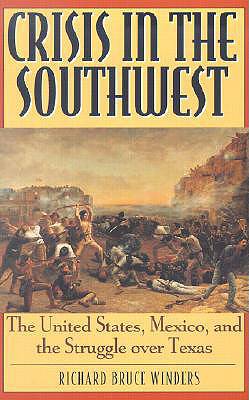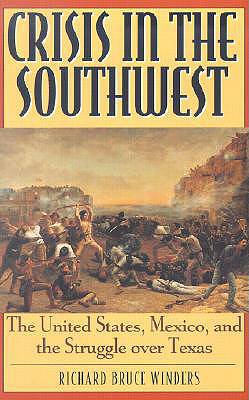
- Afhalen na 1 uur in een winkel met voorraad
- In januari gratis thuislevering in België
- Ruim aanbod met 7 miljoen producten
- Afhalen na 1 uur in een winkel met voorraad
- In januari gratis thuislevering in België
- Ruim aanbod met 7 miljoen producten
Crisis in the Southwest
The United States, Mexico, and the Struggle Over Texas
Richard Bruce WindersOmschrijving
The Mexican War receives scant treatment in books. Most historians approach the conflict as if it were a mere prelude to the Civil War. The Mexican cession of 1848, however, rivaled the Louisiana Purchase in importance for the sheer amount of territory acquired by the United States. The dispute over slavery-which had been rendered largely academic by the Missouri Compromise-burst forth anew as Americans now faced the realization that they must make a decision over the institution's future. The political battle over the status of slavery in these new territories was the direct cause of the Crisis of 1850 and ignited sectional differences in the decade that followed.
In Crisis in the Southwest: The United States, Mexico, and the Struggle over Texas, Richard Bruce Winders provides a concise, accessible overview of the Mexican War and argues that the Mexican War led directly to the Civil War by creating a political and societal crisis that drove a wedge between the North and the South. While on the surface the enemy was Mexico, in reality Americans were at odds with one another over the future of the nation, as the issue of annexation threatened to upset the balance between free and slave states.Winders also explains the military connections between the Mexican War and Civil War, since virtually every important commander in the Civil War-including Lee, Stonewall Jackson, Grant, McClellan, and Longstreet-gained his introduction to combat in Mexico. These connections are enormously significant to the way in which these generals waged war, since it was in the Mexican War that they learned their trade.
Crisis in the Southwest provides readers with a clear understandinSpecificaties
Betrokkenen
- Auteur(s):
- Uitgeverij:
Inhoud
- Aantal bladzijden:
- 172
- Taal:
- Engels
- Reeks:
Eigenschappen
- Productcode (EAN):
- 9780842028011
- Verschijningsdatum:
- 1/03/2002
- Uitvoering:
- Paperback
- Formaat:
- Trade paperback (VS)
- Afmetingen:
- 140 mm x 215 mm
- Gewicht:
- 299 g

Alleen bij Standaard Boekhandel
Beoordelingen
We publiceren alleen reviews die voldoen aan de voorwaarden voor reviews. Bekijk onze voorwaarden voor reviews.









